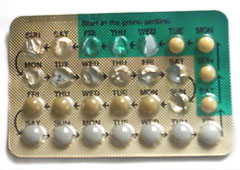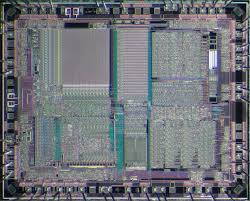E-Pill Or Remote-Controlled Contraception
 Contraception is a complex and sometimes sensitive and controversial issue. Some people choose not to use contraception at all due to personal reasons and people who do choose to use contraception, sometimes don’t know what to use. Some contraceptive methods are inconvenient, uncomfortable and can cause some problems and require a change in methods.
Contraception is a complex and sometimes sensitive and controversial issue. Some people choose not to use contraception at all due to personal reasons and people who do choose to use contraception, sometimes don’t know what to use. Some contraceptive methods are inconvenient, uncomfortable and can cause some problems and require a change in methods.
A few years from now, remote-control contraception could be added to that list.
US company, MicroCHIPS are developing a wireless remote-controlled microchip contraception. It is designed to be planted beneath the skin of either the buttocks, upper arm or abdomen of women. It works by giving women a dosage of 30 micrograms of Levonorgesterel (progestogen) each day. Levonorgesterel can already be found in several different types of the oral contraceptive pill, however the difference between the pill and the microchip, is that the microchip can be operated by a button and will have 16 years worth of Levonorgesterel in it.
This microchip has been dubbed “smart capsule” and the project to make this as much a contraceptive option as condoms and the pill, is being funded by the Gates Foundation. Testing is going to start next year, with the hopes that it will be on the market by the end of the decade.
Like with all the contraceptives out there, there are pros and cons. The biggest pro being that women won’t have to remember to take a pill at the same time every day, and if they decide to have children, they can simply press said button to turn on the chip, to turn it off. The biggest con however, is the concern that the microchip can be hacked, like any other remote-controlled device. If the microchip is hacked, a hacker can change the dosage to make a woman fall pregnant or in extreme cases, kill a woman.
As a young woman who uses the oral contraceptive pill, for many reasons other than the obvious, while writing and researching this article, I did ask myself whether I would use this microchip? My answer, most likely no. I love the idea of the convenience of not having to remember to take a pill every day, however I don’t like the idea of a microchip in my body. It also took weeks for my body to adjust to the pill, so I’m wondering how long it would take for my body to adjust to a microchip.
I’m also wondering whether the microchip will be able to relieve the symptoms and solve some of the problems, that come with conditions that the pill treats, such as Polycystic Ovary Syndrome (PCOS), endometriosis and acne. I’m also wondering if during the testing whether they’ll make adjustments to the microchip, to make it able to prevent the transmission and spread of STDs, or whether it will just be a pill-equivalent.
Only time will tell.
Would you have a microchip implanted in your body as a method of contraception? Feel free to comment below.



